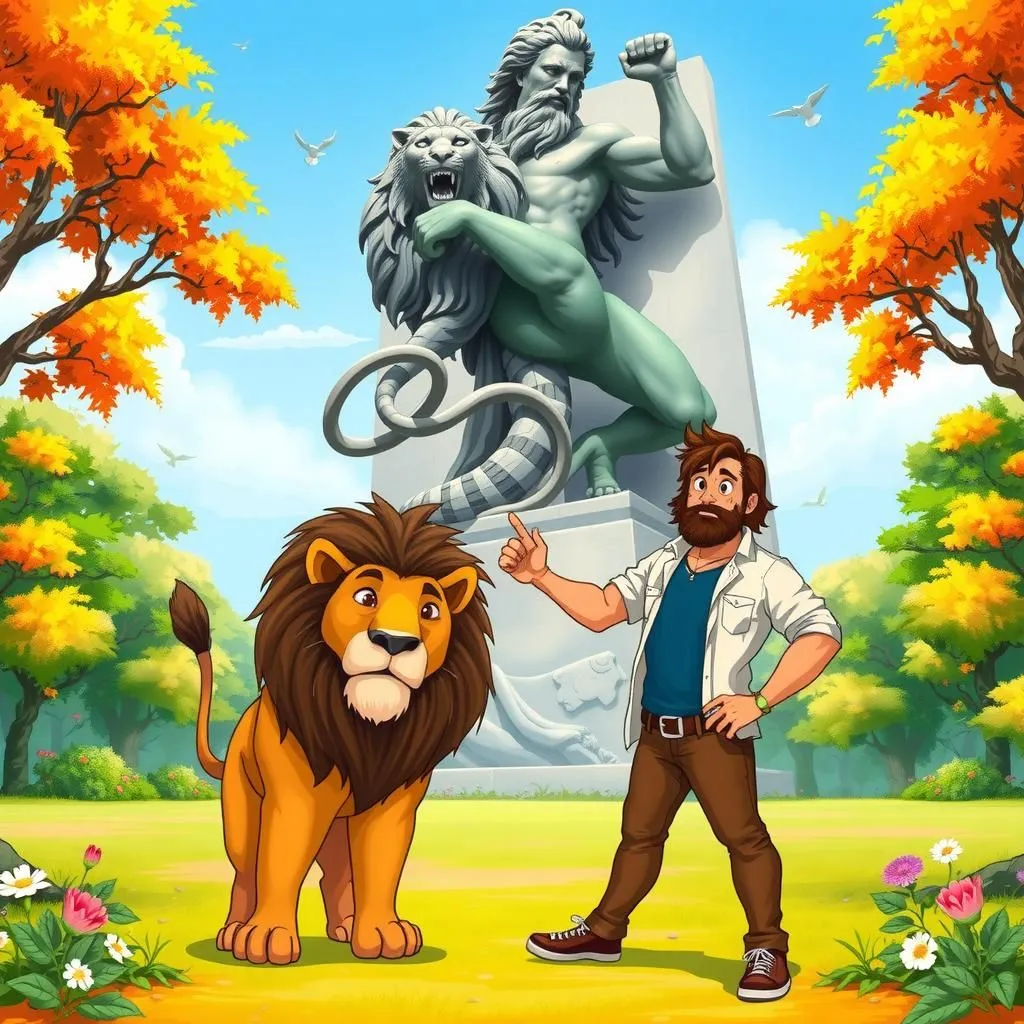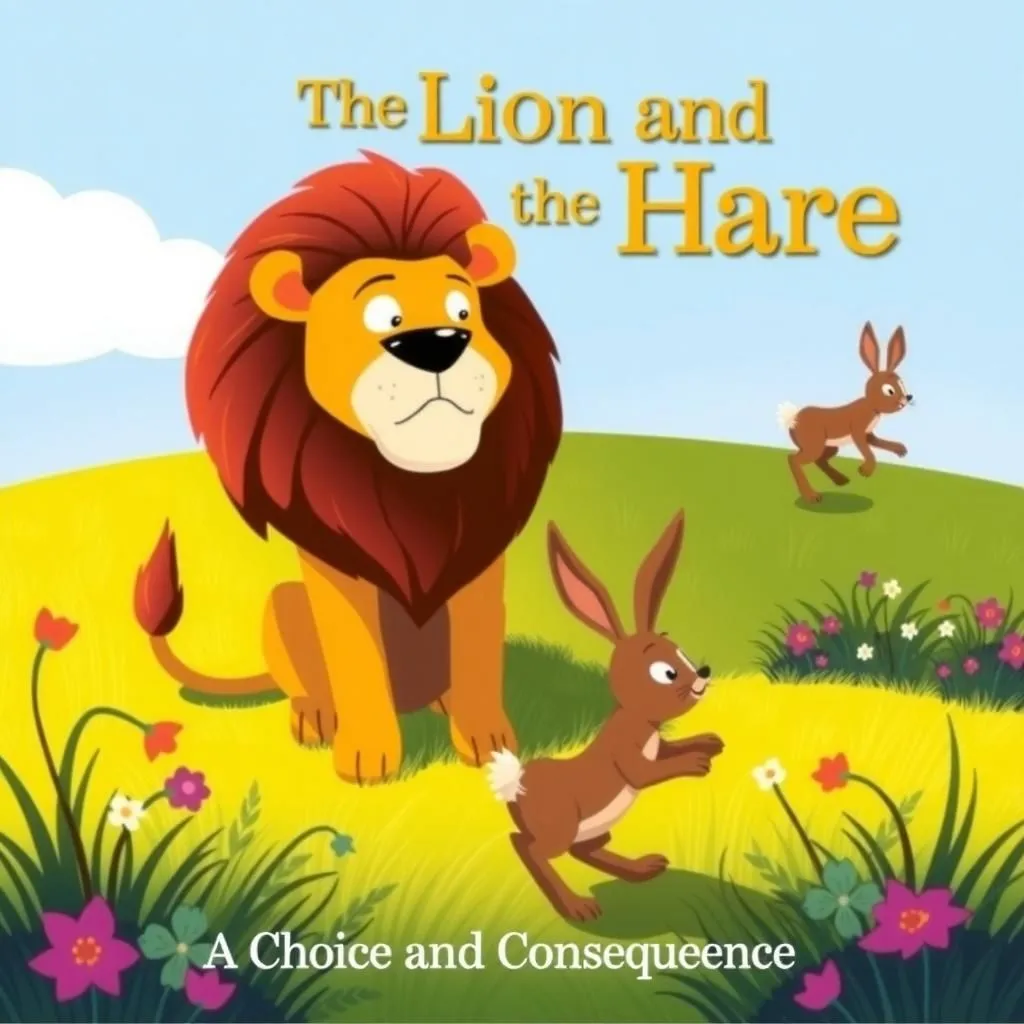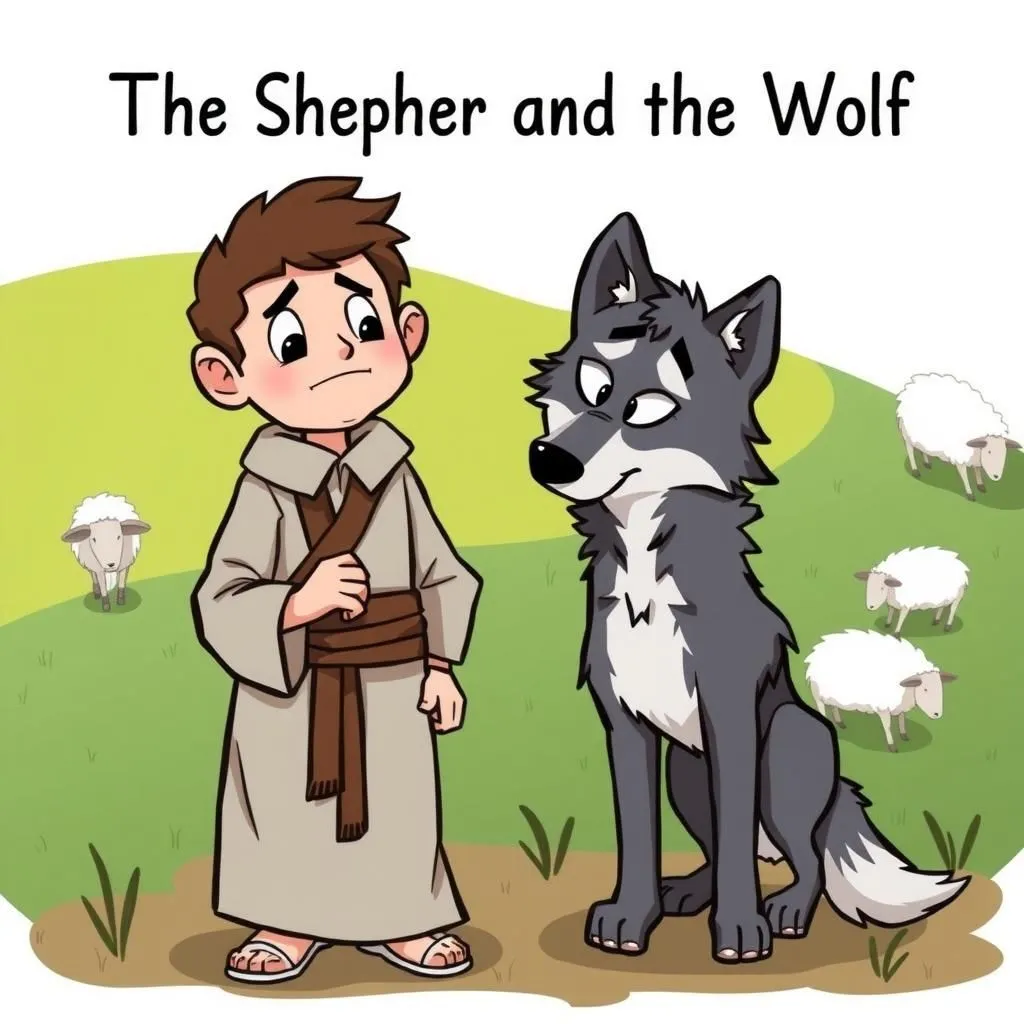
The Lion and the Statue
In "The Lion and the Statue," a Man and a Lion engage in a humorous debate over their strengths, with the Man claiming superiority due to human intelligence. To support his argument, he points to a statue of Hercules defeating a Lion; however, the Lion cleverly counters that the statue is biased, created by a man to reflect his perspective. This inspirational short story with moral highlights how representations can be manipulated, reminding us that truth can be subjective in small moral stories.


